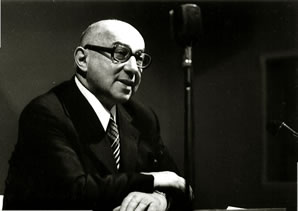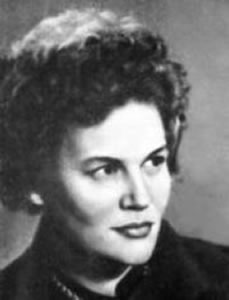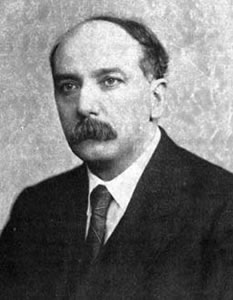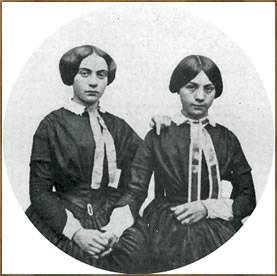De Amerikaanse schrijver Philip Roth werd geboren op 19 maart 1933 in Newark. Zie ook mijn blog van 19 maart 2007 en ook mijn blog van 19 maart 2008 en ook mijn blog van 19 maart 2009.
Uit: American Pastoral
“The Swede. During the war years, when I was still a grade school boy, this was a magical name in our Newark neighborhood, even to adults just a generation removed from the city’s old Prince Street ghetto and not yet so flawlessly Americanized as to be bowled over by the prowess of a high school athlete. The name was magical; so was the anomalous face. Of the few fair-complexioned Jewish students in our preponderantly Jewish public high school, none possessed anything remotely like the steep-jawed, insentient Viking mask of this blue-eyed blond born into our tribe as Seymour Irving Levov.
The Swede starred as end in football, center in basketball, and first baseman in baseball. Only the basketball team was ever any good-twice winning the city championship while he was its leading scorer-but as long as the Swede excelled, the fate of our sports teams didn’t matter much to a student body whose elders, largely undereducated and overburdened, venerated academic achievement above all else. Physical aggression, even camouflaged by athletic uniforms and official rules and intended to do no harm to Jews, was not a traditional source of pleasure in our community-advanced degrees were. Nonetheless, through the Swede, the neighborhood entered into a fantasy about itself and about the world, the fantasy of sports fans everywhere: almost like Gentiles (as they imagined Gentiles), our families could forget the way things actually work and make an athletic performance the repository of all their hopes. Primarily, they could forget the war.“

Philip Roth (Newark, 19 maart 1933)
De Amerikaanse schrijfster Lynne Sharon Schwartz werd geboren op 19 maart 1939 in New York. Zie ook mijn blog van 19 maart 2009.
Uit: Not Now, Voyager
“I woke abruptly, to a darkness so thick I could breathe it in. My mind was ominously alert, none of that blurry, dream-clogged puzzlement that usually comes with the return of consciousness. It was an alertness I often wished for in daylight—sharp, energetic, skimming through the past hours, the boat trip, the long taxi
ride through flat scrubby countryside under a wide white sky, everything that had brought me here. I knew exactly where I was. I remembered the light switch on the bedside lamp even though this was a new place, my first night. I switched it on, but nothing happened. I remembered a row of square plastic buttons on the bed’s headboard and fumbled around until I located them. None of them produced any light.
Now I was baffled, with panic creeping towards me like a little battalion of mice. I got up and groped my way around the room, feeling for the furniture—there wasn’t much of it, as I recalled. It was pitch black and I had no idea what time it was. Maybe it was no time at all. Maybe time had stopped and I was in the afterlife, or some place in between, a dark place, oddly enough with the same layout and furniture as my final room.”
If it was not the afterlife, then it was a room in a hotel in Orkos. Orkos is a town on the Greek island of Naxos, in the Cyclades islands. I was in the middle of the Aegean Sea, on the island where Theseus abandoned Ariadne while she slept, and it was very dark. From my brief exploration shortly after I arrived, I recalled Orkos as a nowhere town, a ghost town. None of the low white buildings dotting the dry landscape had seemed inhabited. No people were on the roads.“

Lynne Sharon Schwartz (New York, 19 maart 1939)
De Duitse literatuurwetenschapper, schrijver, criticus, jurist en socioloog Hans Mayer werd geboren op 19 maart 1907 in Keulen. Zie ook mijn blog van 19 maart 2008 en ook mijn blog van 19 maart 2009.
Uit: Heimat auf Zeit.Hans Mayer an der Universität Leipzig (door Alfred Klein)
„Ein Homme de lettres also, dem nationale Borniertheit und dünkelhafter Provinzialismus von vornherein fremd waren. Der schon in jungen Jahren an sich erfuhr, daß alle scheinbar sehr fremde Literatur, woher sie auch komme, etwas zur Entdeckung des Eigenen beitragen kann, ja daß die Entdeckung des Eigenen ganz wesentlich von der Bereitschaft für die Entdeckung des nur scheinbar ganz Fremden und Anderen abhängt. Mehr noch: einer, dem ein musisches Elternhaus ein ausgeprägtes Interesse auch für alle anderen Kunstgattungen mit auf den Weg gegeben hatte, für die Musik und das Musiktheater vor allem, für die Schauspielkunst und das Konzertgeschehen, für Malerei und Architektur. Und der aus seinem Verständnis für die Eigenart und Gleichberechtigung der Künste die Fähigkeit zu entwickeln verstand, über die Literatur hinauszublicken und -zudenken. Was die eine künstlerische Mitteilungsweise vermag und was sie einer anderen überlassen muß, wenn sie im Gesamtensemble das ihr Gemäße leisten will, hat Hans Mayer in dem »Gespräch über Otto Bachmanns Faustzeichnungen « zu skizzieren versucht, das 1944 unter dem Titel »Faust und die Huldigung der Künste« in der Züricher Zeitschrift »Neue Schweizer Rundschau« erschien: Ein Künstler und ein Kritiker streiten sich um die Möglichkeiten und Unmöglichkeiten eines produktiven Verhältnisses von Komponisten und Malern zu dem von einer großen literarischen Tradition okkupierten Thema. Der Kritiker muß gegen alle seine Vorbehalte einräumen, daß die Gestaltung durch Literatur eine souveräne Gestaltung mit den Mitteln einer anderen Kunstgattung keineswegs ausschließt. Er behält aber trotzdem das letzte Wort:»Weißt du denn nicht«, ruft er seinem nicht eben regelbegeisterten Freund am Sc
hluß zu, »daß alle Kritik nur mit dem Nichtgelingen zu tun hat und das Gelungene selber Gesetze gibt?“

Hans Mayer (19 maart – 1907 – 19 mei 2001)
De Ierse dichter William Allingham werd geboren op 19 maart 1824 in Ballyshannon, Donegal. Zie ook mijn blog van 19 maart 2007 en ook mijn blog van 19 maart 2008 en ook mijn blog van 19 maart 2009.
Wayside Flowers
Pluck not the wayside flower,
It is the traveller’s dower;
A thousand passers-by
Its beauties may espy,
May win a touch of blessing
From Nature’s mild caressing.
The sad of heart perceives
A violet under leaves
Like sonic fresh-budding hope;
The primrose on the slope
A spot of sunshine dwells,
And cheerful message tells
Of kind renewing power;
The nodding bluebell’s dye
Is drawn from happy sky.
Then spare the wayside flower!
It is the traveller’s dower.

William Allingham (19 maart 1824 – 18 november 1889)
Portret door zijn vrouw Helen Paterson, 1874
De Oekraïense schrijfster en dichteres Lina Kostenko werd op 19 maart 1930 geboren in Rzhyshchiv. Zie ook mijn blog van 19 maart 2007 en ook mijn blog van 19 maart 2009.
Stafetten
Verschiedenartige Stafetten :
Es reicht der Bürger dem Bürger Rezepte,
Gebrauchte Bestecke, Buffets und Servietten,
Eigene Stumpfheit und fremde Ideen.
Verschiedenartige Stafetten :
Der Krieger vermacht dem Krieger Gewehre,
Der Meister dem Meister — Geheimnis im Werke,
Ein Zar dem andern — Gesetze und Kerker.
Verschiedenartige Stafetten :
Es reicht der Dichter dem Dichter als Retter
Seele zur Seele,
Sprache zur Sprache,
Des Geistes Grösse, im Wort das Wahre, —
Ohne um irdische Güter zu feilschen,
Um Selbstgefallen, um Selbsterheben,
Ohne die Fackel zu senken, —
Ihr Fallen
hallt wider als Weh im verbrüderten Wesen.
Vertaald door Wira Wowk

Lina Kostenko (Rzhyshchiv, 19 maart 1930)
Rectificatie:
De Duitse schrijfster Kirsten Boie werd geboren op 19 maart (en niet 19 mei) 1950 in Hamburg.
Uit: Nicht Chicago. Nicht hier
„»Ja«, sagt Thomas. Der Vater. »Ja.« Er starrt auf die Käfigtür. Der Himmel sieht aus wie in Vampirfilmen, Wolken jagen vor dem Mond.
»Rex!«, ruft Niklas. »Rexo, Rex! Er ist weg, wo bist du Rex, wo bist du!«
»Niklas!«, sagt Karin. Die Mutter. Packt ihn an den Schultern, rüttelt ihn. »Niklas, beruhige dich!
Wir finden ihn wieder!«
»Rex!«, schreit Niklas. »Rexo!« Dann stößt er einen Ton aus, hoch und schrill, lang gezogen, nicht
enden wollend. Es ist nur ein Kaninchen.
»Niklas!«, ruft Karin wieder und rüttelt ihn. »Hör auf, Niklas, hör doch auf!«
Svenja richtet sich auf, gerät dabei ins Auge des Bewegungsmelders. Auf einmal ist das Gehege
um den Käfig hell erleuchtet. Das heruntergetretene Gras, die feuchte Erde, uneben und immer wieder festgestampft, wo Rex begonnen hat seine Gänge zu graben. Steine und armdicke Äste zum Nagen.
»Weg«, sagt Svenja. Leise. »Hier ist er sicher nicht mehr.« Der Mond verschwindet, gleichzeitig lässt die Zeituhr die Außenstrahler verlöschen.
»Ja«, sagt Thomas hilflos und macht die Käfigtür zu. Behutsam, als könne etwas zerbrechen.
Legt den Haken in die dafür vorgesehene Öse. Der Beschlag mit dem kleinen Vorhängeschloss aus Messing hängt an einer Schraube; wo er vom Rahmen losgestemmt ist, ist das Holz gesplittert.
»Hättet ihr das geglaubt? Ich niemals.«
Niklas’ Heulen ist in ein Schluchzen übergegangen.
»Lasst uns reingehen«, sagt Karin und tippt Niklas sanft auf die Schulter. »Komm, Niklas. Komm.«

Kirsten Boie (Hamburg, 19 maart 1950)
Zie voor nog meer schrijvers van de 19e maart ook mijn vorige blog van vandaag.




















